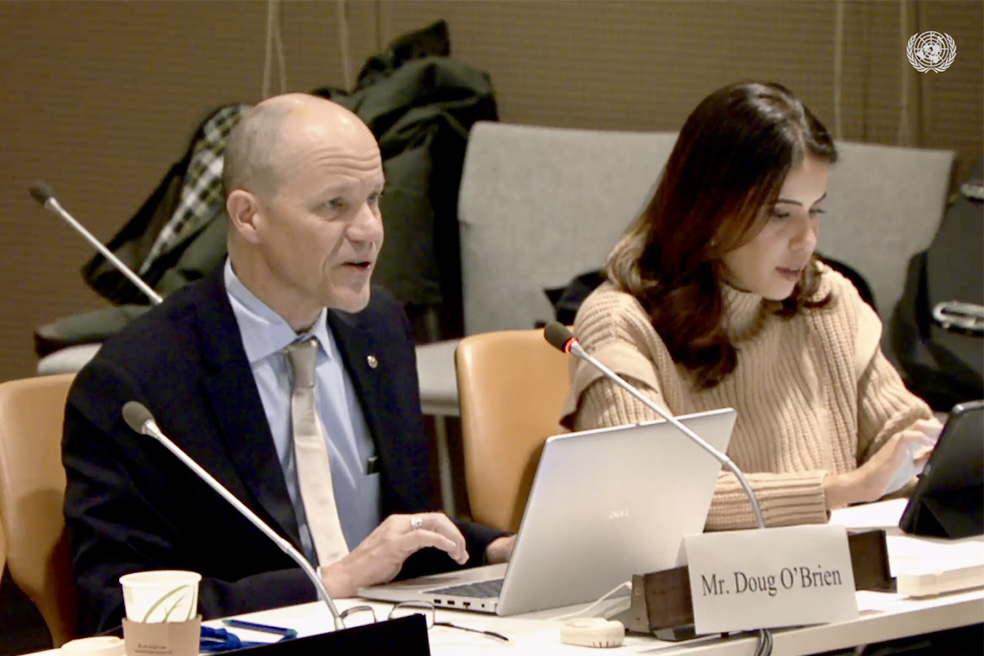 As in years past, NCBA will host its annual conference in Washington, DC in early October. This column considers why this year is perhaps the most important year ever for the co-op community to come together in person.
As in years past, NCBA will host its annual conference in Washington, DC in early October. This column considers why this year is perhaps the most important year ever for the co-op community to come together in person.
We are navigating a time of profound change—likely more than we can recognize. To ensure the cooperative community is influencing this change, rather than simply being victim to it, we need to come together to learn from each other and determine how we can lean into Principle 6—cooperation among cooperatives—to survive and thrive. The IMPACT conference was created nine years ago precisely for this type of work.
Here’s a snapshot of some of the changes the cooperative community is navigating, and how we can meet this moment.
Policy and Funding Environment
The new administration has shifted the federal policy environment in substantial ways that continue to impact the co-op and co-op development community.
Policy
In terms of policy, we saw a generational fight on co-op tax treatment when some in Congress proposed to change the tax status of credit unions that could have wiped out a significant percentage of the nation’s 4,000 credit unions, and thus the ability for tens of millions of Americans to own and control their own financial institutions and futures. NCBA joined America’s Credit Unions and the broader credit union community to fight back against the big banks and their allies in Congress. In the end, we held the line for credit unions and ultimately helped preserve the co-op tax status for all cooperatives. We fear this fight is just a harbinger of a continued tumultuous policy environment, but it’s also a sign that when the co-op community bands together, we are truly a powerful voice.
Domestic Cooperative Development
For the domestic cooperative development community, their core funding from the Rural Cooperative Development Grant (RCDG) program hangs in the balance. As of late July, the funds for next year are at the Office of Management and Budget, even though Congress appropriated the dollars last year. This funding provides the base resources for dozens of cooperative development organizations; without it, many may not survive. No matter how the battle for the 2025 funding resolves, we can be sure that future battles for co-op development resources are on the horizon as the new administration has proposed eliminating funding for the program in the future. And the best way to face these challenges is by working together.
International Cooperative Development
For international co-op developers, it is an existential moment. The administration terminated the USAID Cooperative Development Program, but NCBA is fighting alongside the U.S. Overseas Cooperative Development Council and many others so that Congress reinstates the funding. There are a host of other foreign assistance programs formerly utilized by the international cooperative development community that have been terminated or severely curtailed by the administration as part of its effort to reshape foreign assistance as we know it.
Advocacy
The co-op community needs to stand tall in this policy environment, including during the policy conversations that are part of the formal IMPACT agenda, as well as our annual Hike the Hill during which cooperators visit with Congressional offices to advance co-op priorities. Grassroots advocacy like this is a critical piece of ensuring our elected officials understand how co-ops impact their home districts and drive local economic growth. And there are no better advocates for cooperatives than co-op members and developers like you doing the work in your communities.
Opportunity Economy
Cooperatives must continue to be a beacon for those looking for opportunity in today’s economy. As mentioned in the recent public opinion poll NCBA commissioned earlier this year, American consumers increasingly believe member-owned businesses drive more impact in their communities than for-profit corporations. The poll highlights the significant role cooperatives play in fostering local economies, providing fair pricing and prioritizing consumer interests. There is an opportunity in our current environment to engage more people in the cooperative sector—to fund co-op development, start co-ops, join co-ops, shop at co-ops and partner with co-ops to create an economic future that benefits everyone.
AI and Data
Artificial intelligence (AI) is poised to reshape cooperatives profoundly over the next decade, bringing both transformative potential and urgent ethical challenges. AI tools can boost democratic participation by translating complex governance documents into accessible language and facilitating broader, more inclusive member engagement. Predictive analytics and automation are also improving operational efficiency in key cooperative sectors. However, AI also poses significant risks: algorithmic bias, data centralization and opaque decision-making systems may undermine democratic control and transparency—core cooperative principles. Fortunately, innovative cooperative models are emerging to confront these risks. Platform cooperatives are designing AI systems governed by their users, embedding equity and accountability into their algorithms. At the end of the day, as a cooperative community, we need to ensure that AI is developed in a way that it upholds our cooperative values and principles. If cooperatives intentionally invest in people-centered AI, they can not only safeguard their identity but lead the broader movement toward ethical technology.
Year of Cooperatives
While there are many daunting reasons for the cooperative community to gather at IMPACT this year, let’s not forget that we are also celebrating the Year of Cooperatives. Time and again, cooperatives have proven their resilience and commitment to their members and the communities they serve. Let’s lean into that legacy, and ensure we are uplifting and learning from each other’s successes, challenges, strategies and stories to shape the future we all deserve.
Let’s lean into our legacy, and ensure we are uplifting and learning from each other’s successes, challenges, strategies and stories to shape the future we all deserve.
For these reasons and others, it is simply crucial that co-op leaders come together at this year’s only national, cross-sector cooperative conference. We hope to see you at IMPACT this October 8-9. Register here—we’ve extended our early bird pricing through Friday, August 29 to give you more time to lock in the best prices.


